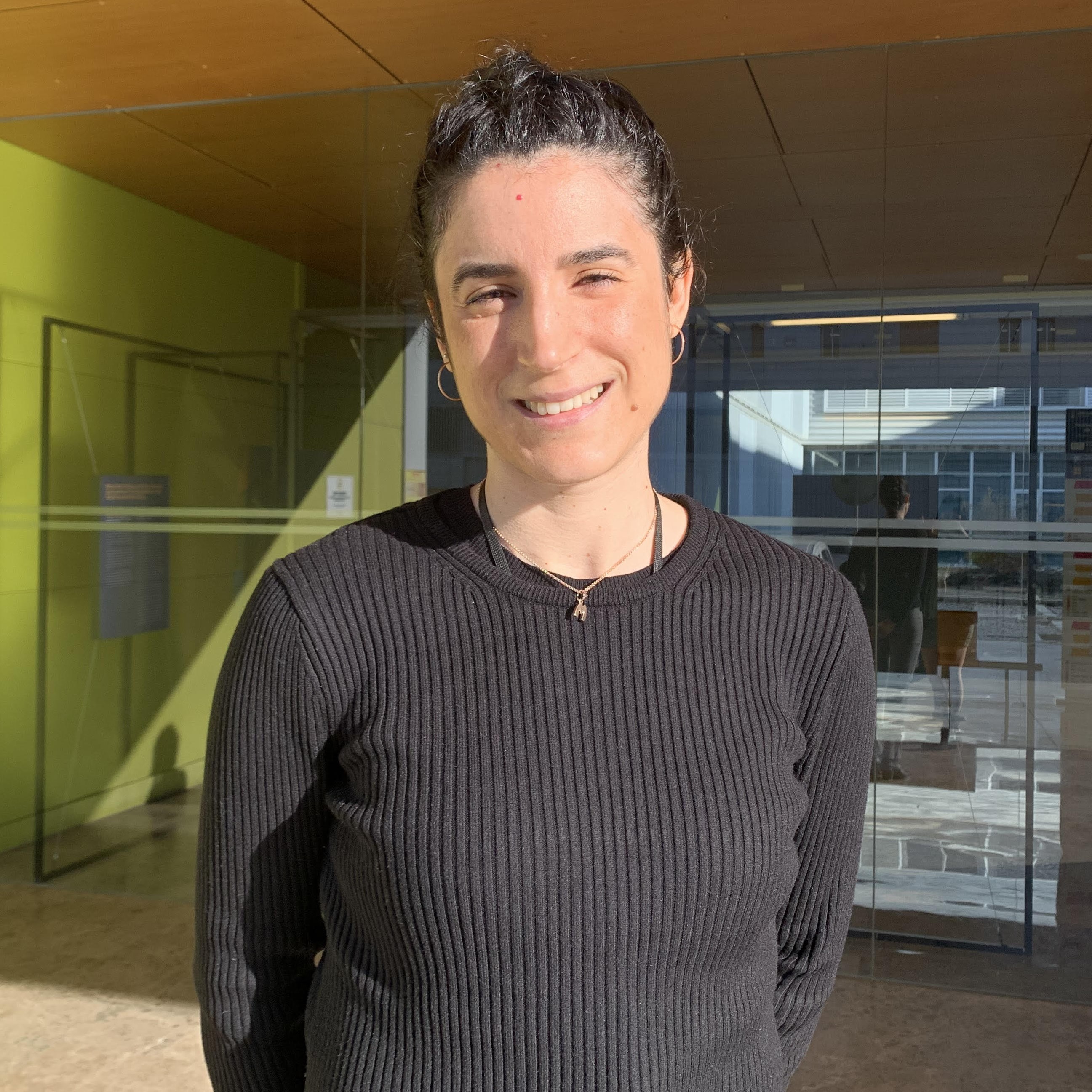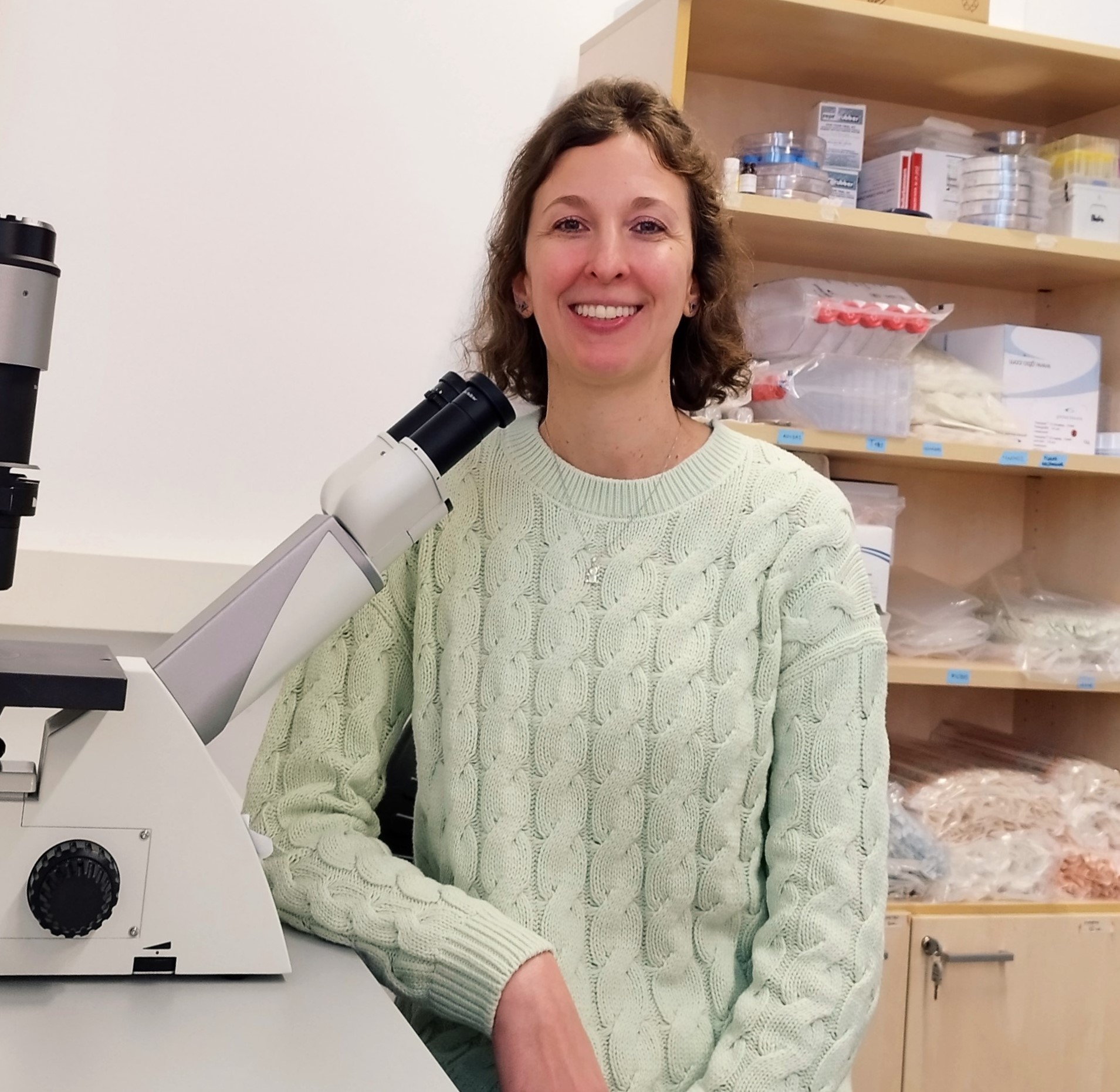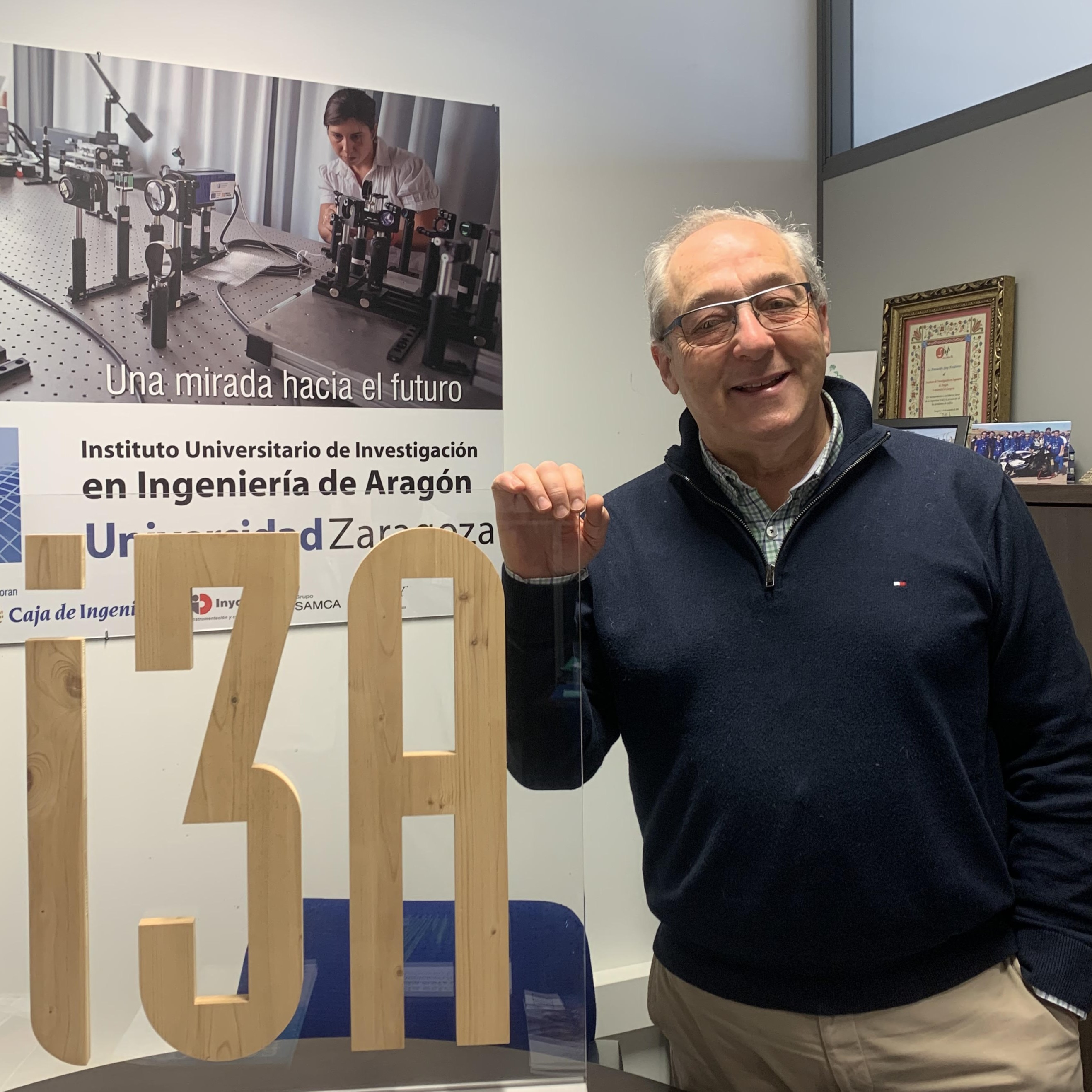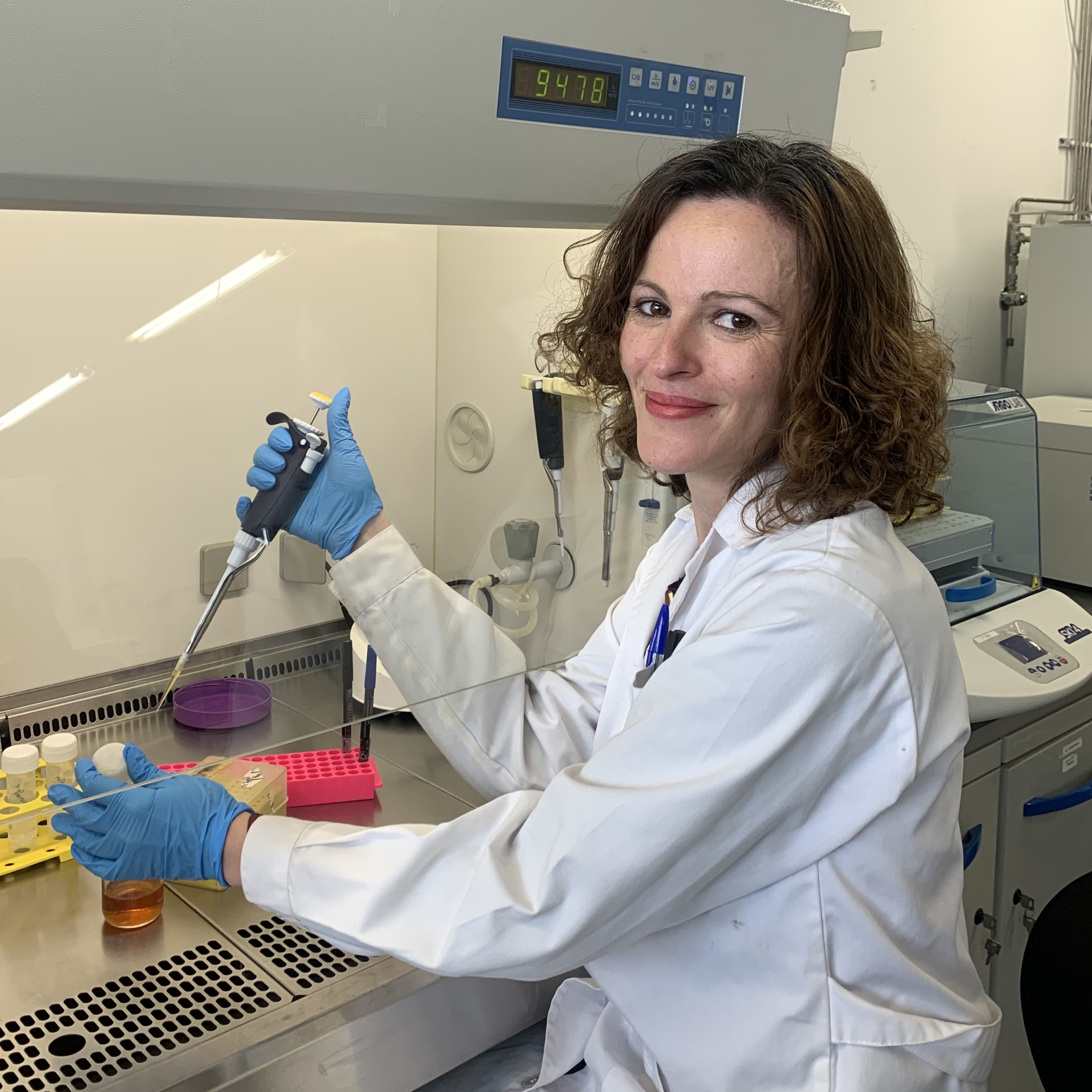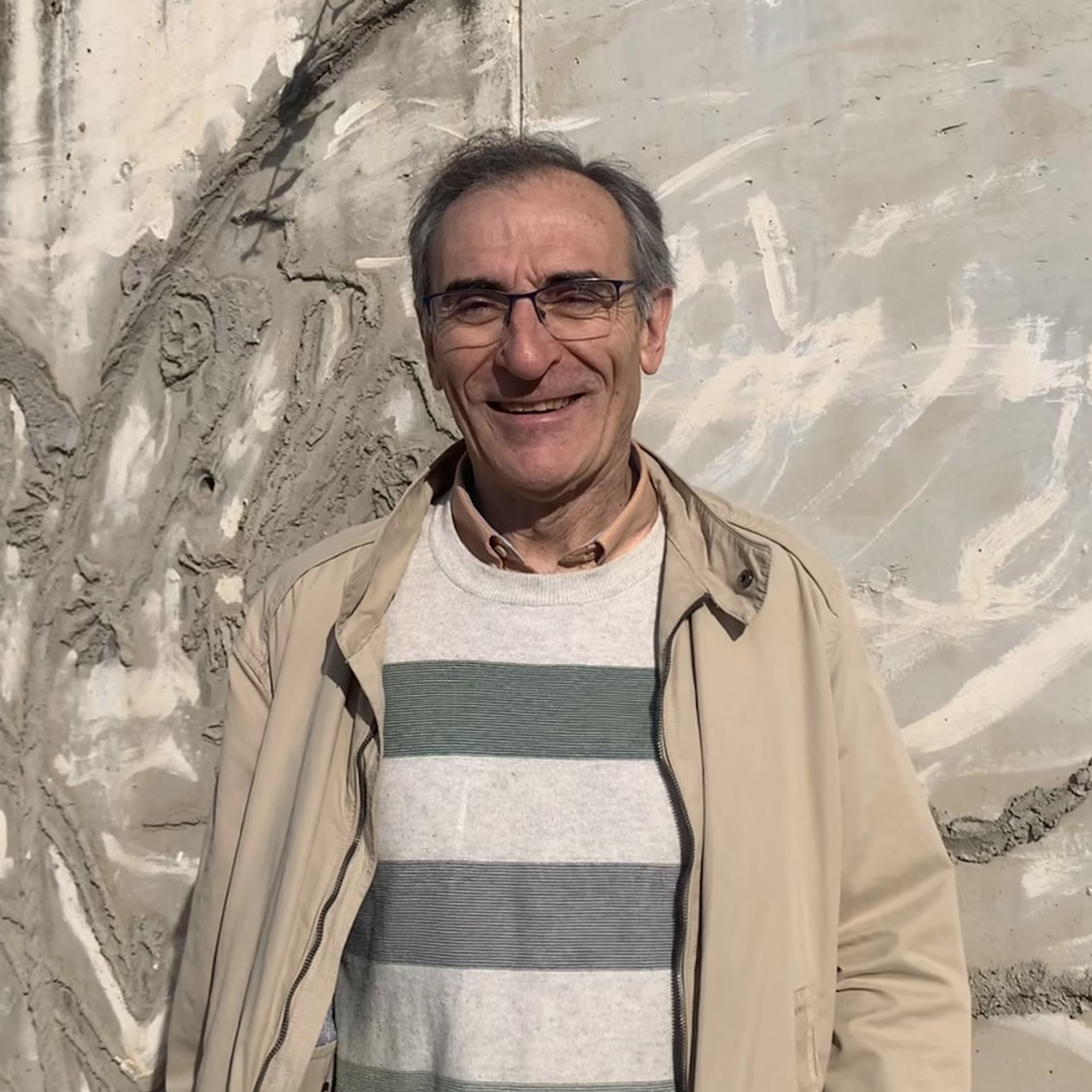
Why did you decide to go into research?
From a very early age, when I was eight years old, I knew that I was interested in research. I liked helping people, but not so much dealing with patients because I could not assimilate at the age of eight that a person could die me. So I said, what's another way to help? Well, if I can't be a doctor, the best way is to be a researcher.
It was always clear to you what you wanted to do?
Yes, it was my vocation from a very early age. I had a cousin who was a biologist and what he did caught my attention. I also liked to help people, to cure...
So you decided to study biology?
I am a biologist and biochemist. I studied Biology at the University of Navarra and then I did my doctorate while I took my second degree in Biochemistry. What I liked most was the research part, understanding how cells worked, diseases, what mechanisms we can use to cure them... all that laboratory stuff.
You are part of the TME Lab, what are your main lines of research?
In general, we are dedicated to understanding how the microenvironment of tissues affects cell behaviour and how cells respond. But our group is tremendously multidisciplinary, we have several lines of research. The main one is dedicated to studying non-animal-based preclinical models. We work on cancer, skin, reproduction and the digestive system. Then there is also the engineering part, artificial intelligence, neural networks or computational models to simulate laboratory experiments.
Any ongoing project that you would like to highlight.
Moore4medical is an European project in which we are developing microfluidic devices that allow us to reproduce as closely as possible the behaviour of the human body. In this project we are working on replicating a skin model or we are also developing models to study how breast cancer cells leave the tumour and reach the blood vessels, thus escaping into the bloodstream, which is where metastases are then generated. So, we study the behaviour of the cells and act by seeing what works and what doesn't work.
You have the feeling that you are an explorer and you are looking for the key that opens the door to the solution to a disease.
How long have you been involved with the I3A?
I think since 2007, 15 years.
One thing you would highlight about the Institute.
The most interesting thing for me is the multidisciplinarity. Of course, I am a biologist, I came in 2007 and I think I was the only one in the whole Institute. So I know all about cells and biology, but we would never have been able to do all this if there hadn't been other research profiles within the group and within the I3A. We work with groups that do totally different things, from the field of chemistry, simulation... and I think that being able to touch many different branches and put them all to work together is the most remarkable thing.
Research is improvement
What do you like most about your profession?
Most of all, when I sit down with my team and we start analysing results, we discover something or generate new hypotheses, new projects... Sometimes you have the feeling that you are an explorer and you are looking for something, rummaging around in different places until you find what you are looking for, the key that opens the door to the solution of a disease. For me, that's the most beautiful part, when you let your imagination run wild.
And what's the least?
The least the bureaucratic part, everything that has to do with paperwork but is useless and very frustrating. You say, I didn't study all these years to do this because it's not useful and it's not going to help other people in a definite way. Our main goal is to heal or help heal people.
What would you say to someone who is thinking of going into research?
The first thing you need to know is what research really is. In many cases, it's idealised, people think: how great you are in the lab, you cure diseases.... And it seems very nice, but then you spend hours and hours and hours doing experiments that don't come out after eight, ten months of work, which generates a lot of frustration, a lot of emotional management. But then you make up for it with the day that it does come out. It's a rollercoaster of emotions. But I always say that research is a must for everyone. From how to prepare breakfast more efficiently in the morning, to the work that we do in the laboratory.
CLOSE UP...
A dream: I would like that Aragon have more biotech companies in order to retain more talent. That the researchers we train are not obliged to leave.
A book: The Little Prince.
A film: Life is beautiful.
Hobbies: Walking around the countryside and basketball; watching my son's games and also Casademont Zaragoza's games, especially women's.
A trip: The French Brittany or my honeymoon trip to China.
Pending trip: Japan and Australia, I would like to stay and live there for a while.
How would you define yourself: As a creative, intuitive and constant person.
